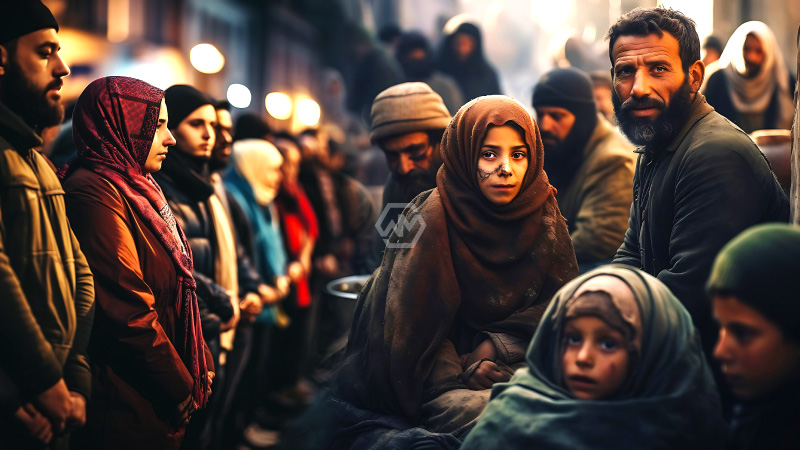- The decision requires “on-the-spot, sustained and unimpeded humanitarian alleviation, which includes access to medical employees”.
- The decision commends WHO and fitness cluster partners inside the area for remaining and delivering.
- WHO’s Executive Board consists of 34 people qualified in the field of health, each appointed by a member state elected by the World Health Assembly.
The UN health agency noted that it was the first time since October 7 that a resolution on the conflict had been passed by consensus within the UN system. It underscores the importance of health as a global priority in all situations and emphasizes the role of health and humanitarianism in building bridges to peace even in the most difficult situations.
On Saturday, the health agency and partners in Gaza delivered supplies to 1,500 patients and transferred patients from Al-Ahli Hospital in the north to a facility in the south, amid what the WHO described as extremely difficult conditions.
The attacks on the health sector must stop and Resolution ‘A Starting Point’
In his opening remarks, WHO Director-General Dr. Tedros Adhanom Ghebreyesus said, “We deplore the barbaric and unjustifiable attacks by Hamas on Israel, which have killed more than 1,200 people, and are appalled by the gender-based statements. Violence during attacks and ill-treatment of hostages.”
He expressed relief that 114 hostages had been released and reiterated his call for the release of all of them.
“I apprehend thoroughly the anger, grief and fear of the Israeli human beings following the awful assaults 2 months ago,” Tedros stated.
“I understand the anger, grief and fear of the people of Gaza, who have already been affected by the 16-year siege and are now enduring the destruction of their families, homes, communities and life as they knew it.
Since October 7, the WHO has verified more than 449 health attacks in Gaza and the West Bank and 60 in Israel, he said, adding that “health should never be a target.”
“I also mourn the loss of more than 100 UN colleagues in Gaza, including our own Dima Alhaj, who was killed along with her six-month-old son, her husband and her two brothers.”
The resolution calls on Tedros to report on the public health implications of the crisis; strengthen technical and material assistance and strengthen partnerships with other care providers.
“But I have to be frank with you: these tasks are almost impossible in the current situation”, he lamented.
He praised the UN chief’s invocation of the powerful Emergency Mechanism 99 last week and Antonio Guterres’ call for a humanitarian ceasefire, which he said was “the only way to truly protect and improve the health of the people of Gaza”.
Tedros expressed deep remorse that the Security Council was once unable to undertake a resolution on such a ceasefire ultimate Friday.
Despite “difficult” negotiations on the executive committee’s text, he praised the spirit of cooperation and compromise among committee members to reach a consensus on the resolution.
In comments delivered throughout the day, many Member States offered their condolences for the loss of lives of civilians and health workers and UN staff.
And without peace there is no health. I urge all Member States, especially those with the most influence, to act urgently to end this conflict as soon as possible.
In a statement issued in response to the resolution, Israel’s ambassador to the UN in Geneva, Merav Eilon Shahar, regretted the absence of reference to hostages in the resolution.
The resolution failed to condemn “Hamas terrorism” or the group’s use of human shields, branding the resolution “a complete moral failure for the international community.”



